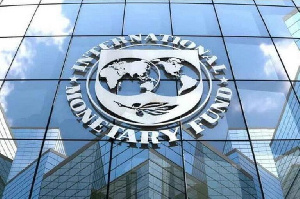Africa News of Thursday, 5 October 2023
Source: theeastafrican.co.ke
IMF: Fiscal consolidation to lift Burundi from economic doldrums
The International Monetary Fund (IMF) says growth-centric fiscal consolidation efforts will help lift Burundi from the current economic difficulties that are slowing recovery from the slump occasioned by recent global shocks.
Sustained efforts to reduce Bujumbura’s current expenditure, which have mostly been inflated by salaries and subsidies, are expected to narrow its budget deficit as it also strengthens revenue collection to deliver stronger growth this year.
In a statement after a review of Burundi’s performance under the 38-month $271 million Extended Credit Facility (ECF) arrangement approved in July, the lender said the controlled fiscal spending and other macroeconomic reforms will help speed up its growth despite multiple challenges.
“Economic growth is expected to slightly accelerate in 2023, driven by the secondary and tertiary sectors, as the Burundian economy continues to recover,” said IMF’s Burundi Mission Chief Mame Astou Diouf.
Multiple challenges are currently derailing economic recovery in Burundi and the cost of living continues to be relatively high compared to most economies across the globe, which have started rebounding from the shocks occasioned by the Ukraine war and pandemic crises.
Delayed rainfall towards the end of last year accelerated food inflation in the country, which has been exacerbated by structural supply chain challenges due to fuel shortages this year, a result of limited foreign exchange, the lender said.
Headline inflation has also remained elevated in the country, averaging at 29 percent in the eight months to August 2023, driven mostly by food prices and depreciated currency.
Foreign currency reserves have also dwindled, reaching $59.7 million in mid-September, worth less than a month’s imports, down from the 1.5 months’ worth of imports in mid-March this year.
Additionally, Bujumbura’s current account deficit has also remained high, currently estimated at 15.6 percent of GDP, mainly driven by high import bill and delayed gold sales, the lender said.
Reforms to reduce fiscal spending and increase revenue, along with monetary tightening by the Bank of the Republic of Burundi (BRB) as recommended under the ECF facility, are expected to reign in on inflation and spur more economic activity.
“Governance and structural reforms will ensure a business environment conducive to private sector-led, job-rich, and inclusive growth,” Ms Diouf said in a statement after meeting with Burundian officials.
Burundi’s economy is expected to grow by 4.5 percent this year, more than double the 1.8 percent growth rate recorded last year, and the fiscal consolidation efforts are expected to halve the budget deficit to 6.1 percent of GDP.
IMF says the first disbursement of $62 million given in July under the new ECF arrangement, along with strong remittances will buffer the dwindling foreign currency reserves, supporting the projected growth.
Entertainment










